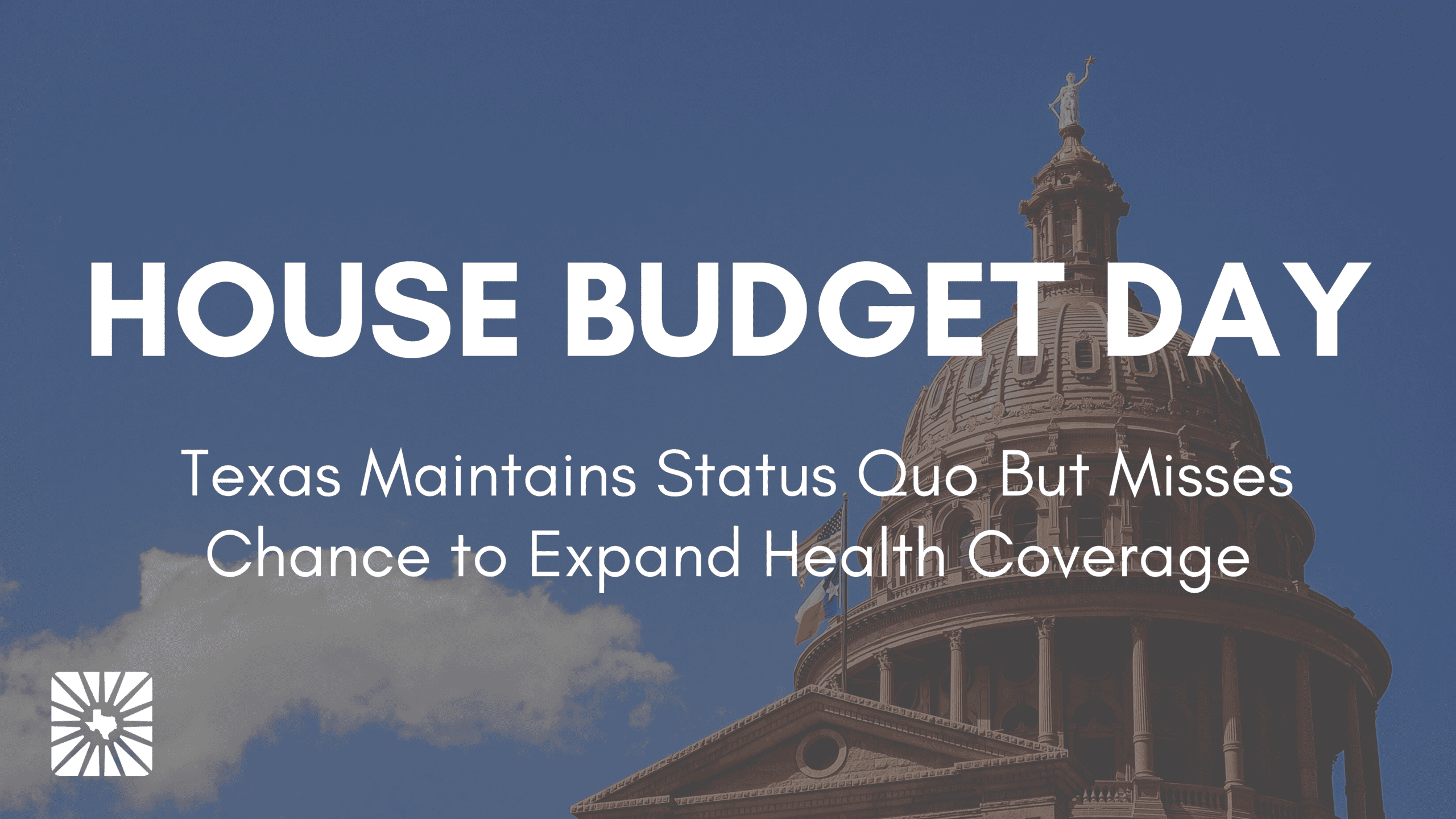After almost 11 hours of deliberation, the Texas House of Representatives passed its $247 billion state budget proposal for 2022-2023. Here is what you should know from the “House Budget Day.”
Good News:
Extremism Defeated: By and large, extremist budget amendments were rejected. The House strictly enforced their rules and kept amendments such as 137, which would have prohibited any pandemic response being used for undocumented immigrants, from being considered. Democrats were ready with their points of order to keep the out-of-mainstream amendments from getting a vote. The Speaker enforced the rules and the day was devoid of any ugly partisan fights.
More Clarity on Federal Funds: The budget debate played out as billions of dollars in federal relief funds are in limbo, waiting for state leaders to green-light their distribution for critical needs. Public education advocates are applauding an amendment by Representative Rodriguez aimed at getting $17.9 billion in federal dollars to public schools as soon as possible, without being used to replace state support. We look forward to Texas school children getting the funding they badly need. The House also sent a message that they want a say in how all federal COVID-19 funding will be distributed in a regular or special session by voting 147-0 for an amendment by Representative Morrison. This will be an ongoing development as House Bill 2021 continues its movement through the House.
Higher Education Financial Aid Funding Improves: A significant underfunding of higher education remains in the formula funding, but state-supported financial aid grants were largely restored in the House mark-up process, although more could be done. Federal COVID-19 funding will go directly to higher education institutions for student emergency grants, without having to go through the state budget.
Bad News:
House Leadership Denies Coverage Expansion: Unfortunately, the House once again failed to expand health care coverage for uninsured Texans by a vote of 68-80. Chairman Coleman, a long-time health care champion, offered a coverage expansion amendment that met all the criteria Speaker Phelan had requested — a flexible and revenue positive plan tailored for Texas that would bring in the 90-10 federal match, help rural hospitals, and help insure over a million Texans. A recent poll shows that 7 out of 10 Texans support coverage expansion, and the House’s failure to act on this critical health care priority means Texas will continue to have the most uninsured people of any state, and the worst uninsured rate. The silver lining is that the majority of House members have signed onto HB 3871, a coverage expansion bill, and there is now a record for voters to hold their elected officials accountable. There is also momentum on addressing other issues of coverage with bills like HB 290, which would provide continuous coverage of children, and HB 133, which provides an extension of coverage for postpartum mothers, that are pending in the Senate chamber.
Border Security Funding Remains the Same: During every session for nearly a decade, members have attempted to move funds from border security to address critical health, humanitarian, economic, and educational needs. Once again, multiple amendments attempted to target these funds. Border Security funds are always targeted because no metrics have determined that the border security funding is accomplishing anything. Asylum seekers crossing the border largely self report themselves to federal officials to make their asylum claim. Border residents complain about the large presence of DPS officials enforcing traffic violations and harassing local residents. From a policy perspective, it’s not an efficient use of money, but budget decisions in the Texas Legislature are often made based on politics — not policy.
Other Notable News:
The House also passed the supplemental budget bill for 2021, which would free up $5.7 billion in General Revenue that could then be available to balance the 2022-2023 proposal, above and beyond what the Comptroller said was available in January 2021. The supplemental bill would also cover some costs of natural disasters and state government capital needs, such as hospital and office buildings and information technology projects, using almost $880 million from the Economic Stabilization Fund and $481 million from federal, State Highway, and other non-general revenue.
Every Texan will continue to monitor the state budget through the legislative process and identify where lawmakers can do more to ensure that Texans of all backgrounds have an equal opportunity to thrive.
